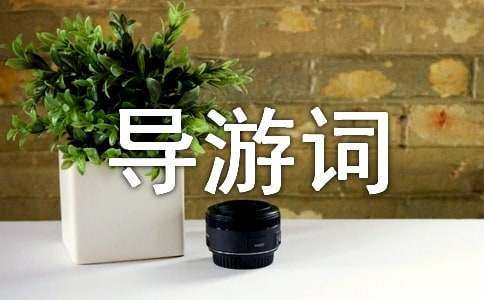天壇英文導(dǎo)游詞范本
Ladies and Gentlemen:

Welcome to the temple of Heaven. (After self-introduction) preserved cultural heritages of China. There are basically two kinds of visitors who come here: local pensioners who do exercises here in the morning and evening and sightseers both from home and abroad. All in all ,there are 12 million visitors very year. Now we are going to go along the route that leads to the alter. It will take roughly one hour. Mind you ,the emperor also walked along this route to pay tribute to the God of Heaven.
(Along the Southern Sacred Road leading to the Circular Mound Altar)
The largest group of architectures ever to be dedicated to Heaven ,the Temple of Heaven served as an exclusive altar for Chinese monarchs during the Ming and Qing dynasties. It was decreed that rulers of successive dynasties would place altars in their own capitals to worship Heaven and pray for good harvest. But why ?
The ancient Chinese believed that Heaven was the supreme ruler of the universe and the fate of mankind ,and thus worshiping rites dedicated to Heaven came into being.
The Heaven the ancient Chinese referred to was actually the Universe, or nature. In those days, there were specfic rites of worship. This was especially true during the Ming and Qing dynasties when elaborate ceremonies were held.
The Temple of Heaven was built in 1420 during the reign of Emperor Youngle of the Ming Dynasty. Situated in the southern part of the city ,this grand set of structures covers an area of 273 hectares. To better symbolize heaven and earth ,the northern part of the Temple is circular while the southern part is square .The whole compound is enclosed by two walls, a square wall outside a round one. The outer area is characterized by suburban scenery, while the inner part is used for sacrifices. The inner enclosure consists of the Hall of Prayer for Good Harvest and the Circular Mound Altar.
(Along the Imperial Passage leading from the Southern Lattice Star Gate in front of the Circular Mound Altar)
the Circular Mound Altar is enclosed by two walls ,each containing four groups of Souther
n Lattice Star Gate, each in turn consisting of three doors, with 24 marble doors altogether. Standing on the passage facing north, you will notice that with each pair of doors on is narrower than the other. This reflects the feudal hierarchy: the wider door was reserved for monarchs, while the narrower one was used by courtiers.
On the day of the ceremony ,the emperor would don his ritual costume and be ushered in by the official in charge of religious affairs. He ascended the three terraces in the forefront to pay tribute at the alter.
(Atop the Circular Mound Alter)
we are now on the top terrace of the Altar, or the third terrace .Each terrace has a flight of 9 steps. At the center of this terrace lies a round stone surrounded by 9 steps. At the center of this terrace lies a round stone surrounded by 9 concentric rings of stone. The number of stones in the first ring is 9, in the second ,18, up to 81 in the 9th ring. Even the number of carved balustrades on these terraces is a multiplee of 9. But why?
According to an cient Chinese philosophy, yin and yang were two opposing factors. Heaven and the odd numbers belonged to yang while the Earth and even numbers belonged to yin. Nine was the largest heavenly number accessible to man . What is more, the ancient people also believed that heaven consisted of nine layers and that the emperor` s abode was on the uppermost tier.
【天壇英文導(dǎo)游詞范本】相關(guān)文章:
天壇的英文導(dǎo)游詞12-25
北京天壇導(dǎo)游詞-天壇解說詞11-08
天壇導(dǎo)游詞口試12-25
北京天壇景點導(dǎo)游詞02-04
天壇導(dǎo)游詞350字10-19
天壇導(dǎo)游詞500字10-19
天壇導(dǎo)游詞400字10-19
天壇導(dǎo)游詞300字10-19
北京天壇導(dǎo)游詞3篇12-26
天壇的導(dǎo)游詞15篇12-24